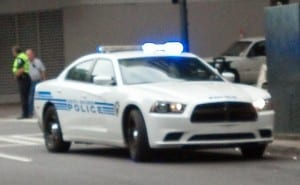Arrest Quotas for DWI 
With all of the press lately about DWI arrests and increase in DWI checkpoints around Charlotte, it is little wonder that people might get the idea that police have mandatory quotas for arrests. Fortunately, there are no quotas. However, police departments in Charlotte and across the nation are under significant pressure to make more DWI arrests and prosecute impaired drivers. Despite new and harsher laws being passed, drunk driving is still a major public safety concern, and drinking related accidents still increase each year. There may be minor fluctuations depending on the particular study, but all can agree that DWI still remains a major problem. It seems that legislatures have done their best to decrease DWI accidents and fatalities by statutorily lowering the presumptive blood alcohol level from 0.10 to 0.08%. They have also passed harsher penalties for even first time offenders, including higher fines and mandatory ignition interlock installation. States, including North Carolina, have used federal dollars to place television ads and billboards that show the true costs of a DUI conviction and to encourage drivers to dial 911 and report suspected drunk drivers. We have even seen marketing campaigns showing pictures of victims of drunk driving, such as children and teenagers. Regardless of new laws or sad stories, the incidences of DWI related accidents always seems to go up, not down. So what really works then?
Studies have consistently demonstrated that the only real solution to any criminal offense is enforcement. Deterrence is only effective to a minor degree. Part of the basis for a death penalty is detterence. You don’t have to ask a random sample to see how ineffective that approach has been, no matter what your personal views on the subject. Enforcement and prosecution do work if done consistently. And, unlike other criminal arrests, DWI actually makes money for the cities and counties where they are prosecuted. If you arrest someone for crack possession, they usually do not have any money to bail out. As a result, they may spend days or even weeks until their trial is called. Every day spent in jail is very costly to the county. Conversely, most individuals charged with DWI get out within hours at no additional cost. And, if convicted, they pay hundreds of dollars in fines and court costs. They even pay for their own probation if that is ordered. Perhaps this is why Charlotte invested in its mobile BAC truck and set up so many checkpoints. Certainly, public safety is always paramount, but with DWI cases, there are secondary gains to be made as well.